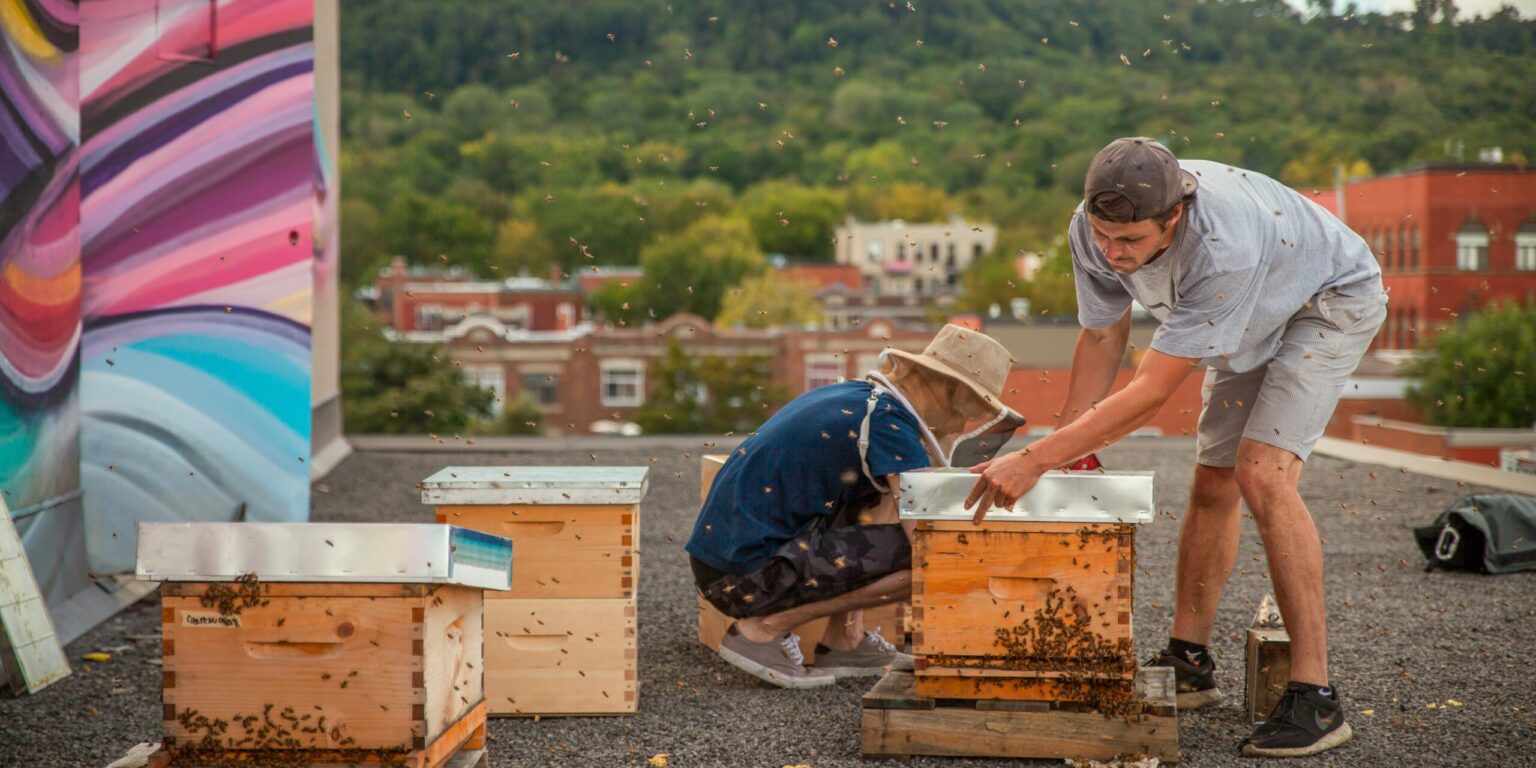Backyard beekeeping surged again on July 17 as HiveHub—a leading urban-farming platform—reported a 45% jump in hive kit orders since June. The increase coincides with a broader trend among millennials embracing wellness, local food, and sustainable living practices. The kits, which include beginner-friendly hives alongside educational webinars and community forums, offer a holistic experience that taps into multiple consumer interests.
Millennials and Gen Z now account for over 41% of U.S. wellness spending, despite representing only 36% of the adult population, according to McKinsey’s 2025 Future of Wellness report. These younger consumers are redefining wellness as a comprehensive, daily lifestyle that spans mindfulness, nutrition, fitness—and increasingly, hands-on sustainable hobbies. Backyard beekeeping fits neatly into this evolving definition, offering opportunities for connection with nature, emotional well-being, and practical engagement.
Beekeeping appeals for several compelling reasons. Many urban dwellers cite environmental impact and pollinator preservation as core motivators. Bees play a critical role in maintaining urban biodiversity, and studies suggest that city bees can sometimes outperform their rural counterparts in both health and productivity. In a time of heightened environmental awareness, the ability to contribute meaningfully through small-scale beekeeping has become a draw.
Equally appealing is the opportunity to harvest fresh, homegrown honey. This aligns with the broader farm-to-table and local food movement, allowing beekeepers to enjoy natural sweeteners produced in their own backyards. With increased concern over processed foods and artificial ingredients, backyard honey provides a healthier, more transparent alternative.
Beyond ecological and culinary benefits, many beekeepers describe the hobby as meditative and fulfilling. Tending to a hive involves focus, patience, and weekly rituals that foster mindfulness. The process of learning and mastering a new skill—especially one so deeply connected to nature—provides emotional rewards. HiveHub’s inclusion of online classes and moderated forums enhances this experience, creating a supportive environment for both new and experienced keepers.
Modern technology has also helped make backyard beekeeping more accessible. Today’s hive kits often include smart sensors that track temperature, humidity, and colony activity, enabling keepers to monitor hive health through a smartphone. These features, once limited to commercial operations, are now affordable for hobbyists and significantly reduce the learning curve.
Backyard beekeeping is part of the broader urban farming movement that’s reshaping city life. Urban farms now produce exponentially more food per acre than rural farms, and bees are integral to this ecosystem. Rooftop hives and community apiaries are increasingly found in major cities such as New York, Seattle, and Detroit, often supported by local ordinances and sustainability plans. Beekeeping has become both a symbol and a tool of environmental stewardship in urban planning.
Historically, urban beekeeping has been practiced for decades, particularly in European cities like Paris. However, recent years have seen unprecedented growth in interest and participation. In London, the number of urban beekeepers increased by 220% between 1999 and 2012. In the United States, cities like Atlanta and San Francisco have taken steps to legalize and encourage responsible urban apiary management.
Still, backyard beekeeping comes with challenges. Regulations vary by city, often requiring hives to be placed a certain distance from property lines, alongside guidance for managing swarms and preventing disease outbreaks. HiveHub and similar platforms include guidance materials to help new users navigate these requirements, but ongoing education and responsible management remain essential.
Looking forward, beekeeping is evolving with innovation and sustainability in mind. Startups and researchers are developing solar-powered hives, automated monitoring systems, and even hive components made from recycled materials. These forward-thinking features attract eco-conscious millennials seeking hobbies that are both meaningful and future-oriented.
The recent 45% rise in hive kit sales reflects more than a seasonal interest—it points to a growing cultural shift. As millennials embrace holistic wellness, ecological responsibility, and local food production, backyard beekeeping is emerging as a popular and enduring practice. With digital support systems, smart hive technology, and a thriving community of like-minded keepers, it is likely to remain a defining trend in the years ahead.
